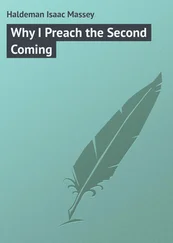“So he’s dead. Let Mobutu and me go back to sleep.”
“Is the mind always logical? Mobutu lies in his big golden bed and he can’t sleep for fear. So he calls in his security chief and says, ‘Security Chief, I want you to do something for me. Go kill Patrice Lumumba.’ ‘But, master,’ the security chief says, ‘The postal worker’s been dead for years.’ ‘You think I don’t know that? The people — don’t you understand? — the people still love him.’ So the security chief calls his men and tells them what to do. They’re confused also, but the security chief shouts at them, ‘Do I pay you clods to ask questions?’ His men shrug. It’s not hard. They go out and murder a guy. The security chief brings the body to Mobutu. ‘Here’s Lumumba, master.’ ‘Good,’ Mobutu says. ‘Now go and do it again.’”
Pohamba blows his nose, honks. “So every night, in Kinshasa, they murder Patrice Lumumba. Well, it’s Africa, no?”
“Good night,” I say.
“You think this isn’t Africa?”
“What?”
“You’re not afraid?”
“No.”
“I am.”
“Why?”
“I’m afraid I’m Lumumba.”
“Nobody wants to kill you. Sleep.”
Vilho taps the opposite wall lightly, whispers, but these walls make no difference. “Patrice Lumumba was a martyr,” Vilho says.
Pohamba clears his throat like a drumroll. “And how do you know I’m not a martyr?”
Vilho ponders this. We can hear him. He sighs when he ponders. Vilho wears a nightshirt to bed. We can see him tucked in there snug, in sheets so clean they squeak. We find sleep listening to him ponder. The three of us breathe in the dark behind our walls.
Vilho who is always cold. Unlike the rest of us, whom the sun warms too quickly after the cold mornings, he remains bundled, wool-hatted, scarfed. He accepts chill as his fate. He never complains. We complain. We complain about the heat. We complain about the cold. We complain that Vilho never complains. He’s the confusing sort of lonely person who does not seek to be unlonely. And beyond this, the most alarming fact of all: It’s not the terrible coincidence that Vilho was a learner at Goas and is now marooned here again as a teacher. It’s that it’s not a coincidence. Upon graduating near the top of his class at Dobra, Vilho requested a posting at Goas. “Requested!” Obadiah cried, incredulous. “It means our poor Puck outcasted himself!”
If you didn’t know he was a teacher, you’d mistake him for a learner. His face is so smooth, hairless, supple. He seems, also, not to salivate over women. Not Mavala. Not even Dikeledi. Pohamba says it’s impossible. An African man? Vilho? A moffie? But Obadiah says, if it’s true, we’d certainly be more cosmopolitan, a bit of Cape Town in the scrubveld. Even so, with all Vilho might hide, he’s the only one at Goas who seems unburdened — and so, naturally, we foist our various aches on him. Antoinette knits him scarf after scarf to keep him warm.
Imust say I’m pleased we’re all in the road,” Obadiah said. “Does anyone have a theory as to why?” No one had a theory. No one intended to have a theory. Still, he waited. Morning break and the heat’s already risen and we’re under the single tree closest to school, which happened to be in the road.
“We’re not learners,” Pohamba said. “Aren’t we the teachers?”
“Wrong!” Obadiah shouted. “I’m tickled, good people of Goas, because the place for stories is in the road. You don’t tell stories inside a house. This was my father’s rule. When he wanted to tell a story, he herded us outside. My two brothers and four sisters, the whole family, except for my mother, who used to say my father made dead dogs look unlazy. She’d come out, however, but she never stepped into the road. Now understand, we lived on a dusty street full of rocks and garbage and sleeping tsoties with hats pulled over their eyes, and my father would tell stories of gone days in the Old Windhoek Location, before they came with the bulldozers and moved everybody to Katatura. My father spoke of the Old Location as if it were God’s humble paradise. Then he’d look around at our road, at all the houses — not houses, he never called our houses houses; they were pilchard cans pushed together with our tribe and number on the door — and he’d say, ‘I’m an old man, and they expect me to fight. With what? These shaky hands?’ My father was a proud man, a cultured man, a Pan-Africanist, a Garveyite. He didn’t condemn men for picking up arms, he begged mercy on the devils who forced them to do so. He’d quote Senghor: Lord, forgive those who made guerrillas/of the Askias, who turn my princes/into sergeants. It was only that he was convinced there was a better way. He believed in education as a way to revolution. Books, he’d say, are the great topplers. Tromp the Boers with Tristram Shandy ! The poor man. For my mother, it was one settler, one bullet. My father shamed her. She’d only laugh nastily at his memories, which she said weren’t even memories at all — but colonialist propaganda.
“And once, out in the road, my father told us about the dance hall that used to be in the Old Location. ‘So big that dance hall, it felt like being in a small country.’ From the other side of the fence, my mother said, ‘Dance hall? You want to thank them for a dance hall in 1942? Other husbands go to jail.’ Then she spat.”
Obadiah paused a moment to think of his mother. Mavala closed her book, but held her finger in the place where she’d stopped reading. She gazed up at the sky. The sun was faint, like a useless bulb in a day-lit room. Pohamba was marking quizzes. Festus was asleep with his head on his knee.
“No, she wasn’t a lady, my mother,” Obadiah said. “And she would have gone and beat the Boers herself if she didn’t have to prepare mealie pap for six of us. My father feared her, but in public he pretended he didn’t, so he hushed her, told her, ‘Go home, woman. Go make your man some Ovaltine.’ She didn’t move. Neighbors had gathered around. Any activity in the road was better than nothing, and if it wasn’t a riot, at least they could watch my parents battle. ‘Size of Lesotho, that dance hall,’ my father said. ‘And in that great hall they held competitions, fierce dance competitions, and during one such event my wife and I — that belligerent woman standing right there — placed first in the Sevastopol Waltz.’”
Obadiah leaped up and stood before us. “Like myself, my father was a skinny man. His clothes never fit properly. When he waltzed in the road with my second sister, his shirt flapped in the air so that he resembled a bedraggled bird with shoes.” Obadiah held his arms out and gripped a woman only he saw, his body erect, one hand cupping an elbow, the other flat on an invisible back. “Ready position!” he called. “And a one and a one, and a two and a two. Swing forward, swing back —”
Whatever he was doing didn’t look like a waltz. It didn’t look like much of a dance at all, really. He was still a little drunk from the Zorba he’d had in his morning coffee, and he was flailing — a slow flail in loose loafers. He was a little drunk and loving his father and his father’s story, and we weren’t listening, because it was too hot and we had to haul ourselves up and teach in less than five minutes and we were just trying to get a little rest by the only shade tree.
He was still circling, alone, when Mavala dropped her book in the dust and stood up and joined hands with him. After a bit, he said, “You can’t dance. How can a woman with so much natural finesse —”
Читать дальше












